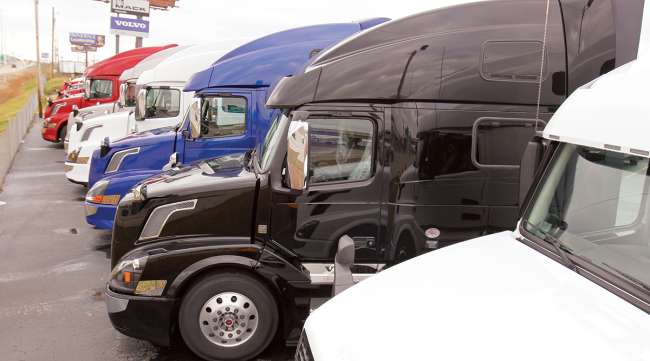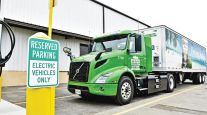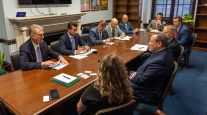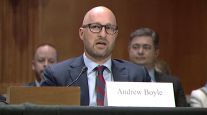Senior Reporter
Freight Stakeholders Press for Excise Tax Suspension

[Stay on top of transportation news: Get TTNews in your inbox.]
A sector within the transportation community is asking the leadership on Capitol Hill to suspend a tax on the purchase of new trucks as part of a pandemic-related economic aid measure.
Groups such as the American Truck Dealers, a division of the National Automobile Dealers Association, and American Trucking Associations are asking for the suspension to last through 2021. The groups argue the 12% excise tax potentially adds $12,000 to $22,000 to the cost of new trucks and trailers.
“To jump-start the economy after the pandemic, a suspension of the burdensome [federal excise tax], first imposed in 1917 to help pay for World War I, would immediately spark the purchase of heavy-duty trucks and trailers. This outdated tax, which increases the cost of new heavy-duty trucks and trailers by $22,000 on average, has long been an impediment to trucking companies modernizing their fleets,” the groups wrote to Speaker Nancy Pelosi (D-Calif.), Majority Leader Mitch McConnell (R-Ky.), and the chambers’ ranking leaders Sept. 16.
Request to Suspend Federal Excise Tax on New Heavy-Duty Trucks and Trailers by Transport Topics on Scribd
“Therefore, a [federal excise tax] suspension is urgently needed to encourage and reinvigorate the purchase of heavy-duty trucks and trailers, helping save or bring back the livelihoods of the millions of Americans employed in jobs related to trucking,” the letter said. “During this crisis, our nation has been more dependent than ever on our trucking fleet for delivery of goods and critical medical supplies, yet the average age of a truck on the road today is almost 10 years old.”
The Motor and Equipment Manufacturers Association, the National Association of Chemical Distributors and the National Retail Federation also signed on to the letter.
A survey by ATA found that nearly 60% of fleets affirmed that without the excise tax they were either somewhat or very likely to buy additional trucks and/or trailers beyond their scheduled timeline for such purchases.
“With the trucking industry and the businesses we serve climbing out of the pandemic recession, a suspension of the [federal excise tax] would have tremendous immediate and long-term benefits," ATA spokesman Sean McNally told Transport Topics on Sept. 24.
"It would spur new equipment purchases, boosting the economy, creating jobs and putting new, safer and cleaner trucks on the road. It is a no-brainer for a lot of reasons at a time when we are looking to stimulate our recovery from the COVID recession.”
This summer, a group of lawmakers led by Rep. Chris Pappas (D-N.H.) called on the leadership in the House to temporarily suspend the excise tax. They proposed including the suspension as a provision in upcoming COVID-19 economic stimulus assistance.
“Immediate relief that extends until the end of 2021 is essential to supporting the workers in this industry,” they said.

What does it take to be a commercial driver, and what are schools doing to train them? Host Michael Freeze speaks with Chris Thropp of Sage Truck Driving School and Don Lefeve of the Commercial Vehicle Training Association. Hear a snippet, above, and get the full program by going to RoadSigns.TTNews.com.
Last year, members of the House introduced the Modern, Clean and Safe Trucks Act, which would repeal the excise tax. Senate companion legislation also was introduced.
“When the [federal excise tax] was introduced over 100 years ago, it was to help pay the costs of fighting World War I,” Rep. Doug LaMalfa (R-Calif.), a member of the Transportation and Infrastructure Committee, said during the bill’s introduction. “Today, it has quadrupled from 3% to 12%, and the Ottoman Empire is no longer around. It’s an outdated and unnecessary barrier that discourages truck buyers from upgrading to more modern, cleaner and safer vehicles.”
Members of Congress have yet to advance another round of COVID-19 economic relief. The prospects for a pandemic-related stimulus prior to the November elections are slim, various observers have noted.
Want more news? Listen to today's daily briefing:
Subscribe: Apple Podcasts | Spotify | Amazon Alexa | Google Assistant | More




